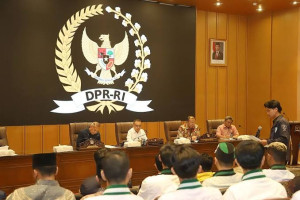Indonesia faces shrinking middle class amid economic shifts: Report
Indonesia, the largest country in Southeast Asia, faces signs of a shrinking middle class as a result of the lingering effects on the economy since the Covid-19 Pandemic and a general shift in its economy, with automation in several sectors have been cited as reasons for the change, a recent report by ABC News reveals.
Many Indonesian people had a shift toward "gig economy" jobs and increasing automation in labour heavy sectors such as mining. Meanwhile, many graduated university students have found it hard to find a job, and rely many on motorbike food delivery only just to survive.
The figures from the Statistics Indonesia (BPS) in August 2024 have demonstrated that the number of people being classified as "middle class" only stands at 48 million (17 percent), while in 2019 the figure was 9 million higher (21 percent).
The middle class was defined by the Indonesian government as a person who spends between Rp2-9.9 million (US$197-958) a month. This year, showed a lower spending.
Growth target
Despite this, Indonesia's new President Prabowo Subianto wants to make Indonesia one of the fastest-growing economies in the world.
President Prabowo recently reiterated an election pledge to pump Indonesia's Gross Domestic Product (GDP) growth from 5 percent to 8 percent a year. However, a decline in the size of the middle class in Indonesia is raising some doubts about the future economic potential.
Meanwhile, despite the plummeting middle class prosperity, there are signs of increasing in some sectors such as movie box office sales and domestic travel have seen much growth in recent years. Indonesia's population overall is forecasted to keep growing in decades ahead, unlike population in some major export markets, such as China and Japan, where it is aging and shrinking.
In the long-term, Indonesia's government is relying on the middle class to rapidly expand to avoid the "middle-income trap," in which a country develops to mid-level wealth, but does not continue to high-income status.
Earlier this year, the National Development Planning Agency (Bappenas) cited a goal that about 80 percent of the population will be classed as middle class in 2045.
Tag
Already have an account? Sign In
-
Start reading
Freemium
-
Monthly Subscription
20% OFF$29.75
$37.19/MonthCancel anytime
This offer is open to all new subscribers!
Subscribe now -
Yearly Subscription
33% OFF$228.13
$340.5/YearCancel anytime
This offer is open to all new subscribers!
Subscribe now







